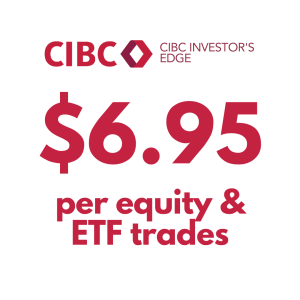
Swing trading vs day trading: with so many trading methods available at our fingertips, what is the best strategy? Both swing and day trading involves watching markets closely. Traders make predictions for short term changes in markets to earn a small profit. By continuously doing this, investors can earn cumulative profits in the long run. As with any security market, there are significant risks to consider before getting involves in swing trading or day trading. Continue reading to understand how these trading strategies compare and contrast, and which is the best option for you.

Table of contents
What is swing trading vs day trading?
Swing trading and day trading are both short term trading strategies. Day trading occurs many times in a single day and requires high involvement. In fact, most day traders work on a full time basis and are considered self-employed. In summary, securities are not held overnight or for longer than a day when day trading, as the name implies. On the other hand, swing trading has significantly less activity involved. With swing trading, securities are held for multiple days to a few weeks at a time.
Both methods of trading involve extensive transactional analysis and charting skills. Traders will analyze trends in any given market for a period and then buy and sell based on predictions. Any trader who holds securities longer than a few weeks would likely be engaged in trend trading. Trend trading is a long-term trading method. Some investors prefer not to trade at all and invest their money into assets for years at a time, thereby yielding investment income.
Related Reading: How to Invest in Stocks
CIBC Investor’s Line Offer
Up to $6.95 per online stock or ETF trade. Plus, there’s no minimum account balance.
What is swing trading?
Swing trading is a type of stock or securities market trade strategy. With this method, stocks are held longer than day trading. Typically, stocks are held for a few days to no more than a few weeks. Although, some swing traders may hang onto assets for up to a maximum of a few months.
Swing trading aims to capture profits by analyzing the market and purchasing positions to be held for a limited amount of time. Most classic stock traders are swing traders. Changes in businesses affect the stock market in a relatively short amount of time. Swing traders target these shifts in the market to earn a profit.
Technical analysis is the primary method of analysis used by swing traders. They use fundamental analysis and monitor price trends and patterns as well.
Pros and cons of swing trading
Stock and other security markets carry risk. No amount of analysis can ever completely predict the fluctuations of security or eliminate risk. The longer a security is held, the more overnight and weekend gaps that can occur. Securities can open to unpredictable changes during these sessions. However, swing trading can produce high profits for those who excel at the method and know their craft. Check out the pros and cons of swing trading vs day trading below.
CIBC Investor’s Line Offer
Up to $6.95 per online stock or ETF trade. Plus, there’s no minimum account balance.
Pros of swing trading vs day trading
- Less overall trading and transactions than day trading.
- Less time requirements since trading volume is lower.
- Trading can be completed through a broker.
- More money can be earned per trade.
Cons of swing trading vs day trading
- Transactional analysis is time-consuming to learn and maintain.
- Money can be tied up for longer periods.
- Risk of significantly higher losses per trade.
- News while markets are closed can greatly affect prices and profits.
Related Reading: How to Short a Stock in Canada
What is day trading?
Day trading involves watching markets closely throughout the day, as opposed to throughout a week or other short period of time. Day traders will then capitalize on the minute shifts in security prices. These micro shifts happen constantly throughout the day as prices rise and fall. To achieve this, they use technical analysis, follow relevant news feeds, and make moves quicker than the mass public. This positions day traders to earn money by leveraging large capital against the natural ups and downs of a market.
The Toronto Stock Exchange (TSX) is open from 9:30am to 4:00pm Eastern Time, for instance. Day traders who engage in this market will complete all their trading between these hours. During this time, securities on the TSX are constantly shifting in price. Day traders make predictions of these small shifts throughout the day. Then, they buy and sell securities to earn small profits. While the amount of money earned in a day may not be much, it cumulates in the long run thereby yielding significant income.
Day trading is often viewed as a get-rich-quick scheme. Perhaps this is because it can be done from the comfort of your home and the start up investment can be as little as a couple hundred dollars. However, it is one of the most complex trading strategies. Investors who have mastered day trading have spent significant time understanding how markets work and crafting their technical approach. Be sure to proceed with caution, it’s not as easy as it looks!
Pros and cons of day trading
As mentioned, both swing trading vs day trading carry risk. It is impossible to eliminate risk, even if you’ve developed a solid strategy and approach. Let’s explore the pros and cons of day trading against swing trading below.
Pros of day trading vs swing trading
- More money can be earned overall as more trades are being made rapidly.
- Money is not tied up for long periods.
- News can be monitored while markets are open.
- Day traders can trade before public, reactional buy and sell, which affects the market.
CIBC Investor’s Line Offer
Up to $6.95 per online stock or ETF trade. Plus, there’s no minimum account balance.
Cons of day trading vs swing trading
- Day trading involves the most analysis and attention of any trading style, it is a full time job.
- Transactional analysis is time-consuming to learn.
- Understanding how news affects the public’s buying and selling habits is difficult.
- Ensuring you are closely monitoring markets and news can be stressful.
- Rapid action and decision making is required.
- Requires complex computer software and tools.
Related Reading: 5 Best Day Trading Platforms in Canada
Is swing trading better for beginners?
Swing trading can be a better starting point for beginners, but no trading method offers guaranteed success. Not even if you choose to invest over the long term. However, swing trading introduces you to the market basics. You can learn how markets are affected by news. Swing trading offers significantly less stress and requires less time overall. In addition, if you lose on a trade, you can always hold it longer until it turns a profit.
Once you have learned to swing trade with some success, you can graduate to day trading. However, day trading is generally a bigger commitment than swing trading, which is notable. Swing trading could be done as a side hustle whereas day trading is considered a full time job. If you’re not ready to dive in as a full time investor, day trading may not be right for you. Furthermore, day trading involves the same logic as swing trading, but at a much faster pace.
In general, as a beginner, you will want to do your research, learn different market analysis methods, and establish your risk level. At the forefront, you may lose money with either swing trading vs day trading while you learn the ropes. Be sure to only invest capital that you are willing to part with. From there, you can decide how dedicated you want to be and choose the appropriate trading style accordingly.
Related Reading: Bull vs Bear Market
Is day trading safer than swing trading?
Day trading offers the opportunity to earn more money. This is done through smaller profit increments, using significantly more trades. But there is a lot more going on with day trading vs swing trading. It can be very complicated to pay attention to all the factors that affect markets and buy or sell at the right time, especially as a beginner. The greater potential for reward communicates greater risk. In other words, for its level of complexity, day trading would not be safer than swing trading. Finally, day trading typically involves a greater commitment of time which is also considered higher risk because you could be spending that time elsewhere.
However, since all trades are made while markets are open, there is less risk of overnight or weekend gaps when compared to swing trading. With day trading, you would have the ability to respond to negative news immediately. Significant losses can occur on the market due to gaps between sessions. This exposes swing traders to significant risk that is not present with day trading.

Match to your perfect advisor now.
Getting started is easy, fast and free.
Overall, day trading is generally higher risk than swing trading. However, both strategies come with their own specific risks and rewards. As an investor, you will never be completely sheltered from risk and you should expect that when beginning your journey.
Related Reading: Best Cryptocurrency ETFs in Canada for 2023
Do swing traders make more money?
Swing traders tend to earn more money per transaction than day traders. Securities can experience significantly higher growth over time than they can in a day. Meaning? Swing traders can earn much more money per security trade.
But on the contrary, day traders are making more trades per day at a smaller profit. A successful day trader can make significant amounts of money from this in the long run. As a result, day traders typically earn more in annual income than swing traders. Although, they also commit to investing on a full time basis, compared to a part time or side hustle basis as seen with swing trading.
Which type of trading is most profitable?
Both swing trading vs day trading can be profitable trading methods. However, day traders tend to earn more per year when compared to swing traders. This is likely because of the difference in time commitment and that day traders have already spent significant time developing their investing strategy. But at the same time, they both present certain degrees of risk. Ultimately, you get what you put into it. The more time you spend understanding markets and developing your craft, the more likely it is that you will become profitable.
Read More: What is the average debt in Canada?

